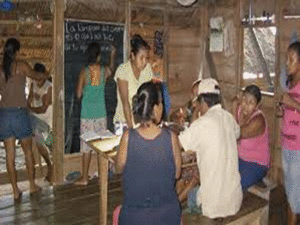
Por: Julio C Valdez/ Venezuela
De lo que aquí se trata
La Andragogía, educación entre adultos, es una propuesta al quehacer educativo contemporáneo, especialmente en América Latina. Propone alternativas de enfoque y método tanto al mundo educativo universitario como a los procesos formativos de los llamados movimientos sociales.
La propuesta andragógica puede refrescar la universidad actual, sacudir un poco su estratificación piramidal; su sistema de promoción individualista, competitiva; su forma fragmentaria de conocer; su esquema evaluativo que da excesiva discrecionalidad al cuerpo docente. Apuntamos a una visión crítica de esa institución que logra mayor éxito en la medida que los estudiantes se desarraigan de sus contextos vitales y respiran una lógica de instrucciones y de obediencia irrestricta a la autoridad, y que muchas veces tiende a asumir esquemas de empresa privada, desde la búsqueda del máximo beneficio y el amor al lucro.
Pero la Andragogía también puede aportar elementos relevantes a procesos formativos en escenarios sociales emergentes, vinculados con la organización y movilización popular. Hablamos de una educación que se genera en problemáticas concretas, y abundan en recursos formativos que usualmente no son registrados y mucho menos sistematizados. Por otra parte, los programas formativos específicos emanados de instituciones oficiales, tales como ministerios y universidades, usualmente responden más a las racionalidades institucionales que a los requerimientos de las organizaciones comunitarias. (Valdez, 2010).
En el presente trabajo referiremos en qué consiste la propuesta andragógica y qué aporta a la educación formal y comunitaria de hoy. Siendo un enfoque orientado a la educación entre adultos, definiremos cómo concibe la Andragogía a la persona adulta y cómo caracteriza sus procesos de aprendizaje. Entendiendo que el mundo de la educación es tan complejo que hace necesario el diálogo entre y corrientes y propuestas, asumimos la necesidad de abrir diálogo fructífero entre enfoques con otras propuestas, con el propósito de enriquecerse mutuamente, sin que ninguna de ellas pierda su espacio cognitivo propio. En este sentido, escogemos la educación popular, tradicionalmente vinculada con la educación fuera del sistema educativo formal.
Qué es eso de la Andragogía
La palabra Andragogía que surge en Europa en 1833, empleada por Alexander Kapp, se recrea como disciplina en los Estados Unidos a inicios de los 70 del siglo pasado, en los planteamientos de Malcolm Knowless. Llega a América Latina en esa misma década, a través de Félix Adam, quien le imprime interesantes aportes. Mediante programas de postgrado, jornadas de investigación y diversas publicaciones, durante los años ochenta del siglo XX, la Andragogía logra expandirse por universidades y espacios comunitarios en buena parte del mundo.
La Andragogía nos señala algunos planteamientos fundamentales:
1. Por haber diferencias fundamentales entre los modos de aprender de niños y adultos, las estrategias han de ser diferenciadas. El adulto aprende valorando y analizando experiencias propias y ajenas, construyendo sus proyectos de vida y enfocando los problemas que surgen del desempeño de sus roles sociales.
2) Por ser el adulto un ser autodirigido y responsable de su propio proceso de aprendizaje, la educación debe ser necesariamente personalizada. Debe partir de los intereses personales y las búsquedas vitales. Y, aunque parezca contradictorio, esto sólo se logra cuando esas personas logran conformar comunidades de aprendizaje.
3) En la educación entre adultos, se trata de abrir todos los espacios posibles de aprendizaje. No es el sistema institucional el protagonista, sino cada una de las personas que decide aprender. Independientemente de los roles formales, todos los involucrados en procesos formativos son aprendices permanentes. Este es un punto altamente revolucionario.
Aportes de la Andragogía
Según Knowless y Adam, la Andragogía es a la vez arte y ciencia (Adam, 1977). Es estrategia formativa y campo del saber. Desde nuestra óptica, Knowless (1972), enfatiza el papel de la Andragogía como hecho tecnológico, mientras Adam, sin dejar de lado el hacer, aportó elementos relevantes para considerarla como ciencia.
Por otra parte, la Andragogía ha contribuido a refundar una visión humanista de la educación. Los seres humanos, en ella, somos multidimensionales, integrales, que requerimos de ambientes y oportunidades para crecer en todos los sentidos posibles. En cuanto a propuestas metodológicas, son innegables los aportes de la Andragogía a la educación entre adultos. Ha incidido en la adopción de prácticas más participativas, como por ejemplo la dinámica de grupos, el empleo del contrato de aprendizaje, y ha fortalecido el uso del método de proyectos.
También podemos decir que la Andragogía lleva en sí una postura transformadora. Supone que, por ser los adultos seres con tendencia a la autonomía, responsables de sí y de la convivencia con otros, con proyectos de vida en marcha, requieren para su formación ambientes flexibles, participativos, integrales. La apertura de estos espacios implica un ablandamiento de las estructuras educativas dominantes, caracterizadas por su rigidez tanto en los ámbitos formales como en los comunitarios. La Andragogía, pues, puede ser una brisa fresca en el endurecido sistema educativo existente.
La Andragogía como estrategia y disciplina
Desde nuestra perspectiva, la Andragogía constituye a la vez:
1. Un enfoque, en el sentido de proporcionar cierta óptica para mirar, nombrar y teorizar en torno al hecho educativo, y
2. Una estrategia en el sentido de presentar conceptos, principios y lineamientos para orientar la vivencia de los adultos en procesos de aprendizaje.
Una disciplina, desde nuestra mirada, es una matriz viviente, palpitante, conformada desde el encuentro de diversos autores-actores, con distintos enfoques y aproximaciones convergentes y también divergentes. Es el reto que señala Pereira (s/f): La Andragogía ha de integrar realidades disímiles entre diversos grupos y actores, en un universo de información que fluya entre la identidad y la diferencia, entre la unidad y la pluralidad. Ello la pone frente a la creatividad y la transgresión de lo cotidiano, y a la búsqueda de armonización de los rasgos interdisciplinarios de los participantes.
Lo anterior implica que la Andragogía está en proceso permanente de generación y crecimiento, pero también de revisión y de corrección. Su foco de estudio es la formación entre personas adultas, y todo lo que en ello está implicado. Sobre este ámbito nos ofrece un cuerpo sistemático de principios, conceptos y lineamientos estratégicos.
La reflexión compartida, al interior de la disciplina andragógica, favorece también el diálogo interdisciplinario, la relación íntima con otros campos del saber: la psicología, la historia, la antropología y la ergología, y también la biología, la sociología y la economía, entre otras (Adam, 1977).
Este desarrollo humano, desde la mirada de Félix Adam (1977), está mediado por la educación del adulto en sus dimensiones biológica, histórico-antropológica, social, psicológica y ergológica. La Andragogía es un camino muy importante para abrir espacios educativos que favorezcan el crecimiento de los seres humanos para vivir más plenamente, abriéndose al disfrute a la vez que al trabajo creativo en beneficio de sus semejantes.
Mas, si la Andragogía se enfoca en la educación del adulto, conviene delimitar bien qué se entiende como tal.
¿Quién es adulto?
Knowless (1972) vincula al adulto con el ejercicio permanente de autoconcepción, en oposición a su realidad vital, lo cual le plantea retos que van direccionando su conducta. Es decir, el ser humano no es algo definido, acabado, sino alguien que se concibe y se define a sí mismo en acciones que se confrontan con la realidad.
Por otra parte, Félix Adam (1977) también concibe al adulto como un ser en proceso de aprendizaje permanente, para potenciar su desarrollo pleno en diversas direcciones:
1. En los procesos fisiológicos y morfológicos.
2. En la comprensión y asunción de un rol histórico-cultural.
3. En la definición de su rol en lo económico, cívico y político.
4. En lo cognitivo, emocional y
5. En el plano de la acción, y el desarrollo de capacidades para accionar creativamente en el mundo del trabajo.
En este movimiento, el adulto definirá y decidirá conscientemente los pasos a seguir, asumiendo el despliegue de su experiencia, siendo principalmente él mismo su propio regulador (Adam, 1984b). El adulto construye saberes para orientarse en situaciones de incertidumbre. Es persona en proceso de humanización creciente que conlleva un despliegue de creatividad (Ludojoski, 2008). En otras palabras, hablamos de un proceso de autoeducación, mediante el cual elegimos libre y responsablemente qué aprender y cómo hacerlo.
De la mano con quienes enfocan la biografía humana como un medio de estudiar procesos sociales complejos (Ferrarotti, 1983 y Bertaux, 1983), miramos al adulto como un ser con historia. Como ser humano, el adulto sintetiza y retraduce el movimiento de la totalidad social. Podría afirmarse temerariamente que la sociedad se expresa por las acciones de las personas, sin restar a estas su autonomía y sus ámbitos de libertad. La historia no trata sólo sobre el pasado y el presente, sino también sobre el futuro, por lo menos como reto, como posibilidad abierta (Zemelman, 2002). Los procesos formativos entre adultos pueden articularse con esas proyecciones al futuro, o pueden modificarlas. Tratar con el adulto es moverse entre historias comunitarias, locales, nacionales, regionales y mundiales, e historias personales de vida entrelazadas, conformando tramas desde lo cotidiano.
Desde estos enfoques de investigación, asumimos que los adultos, en tanto humanos, son seres en relación que construyen colectivamente sus espacios sociales. Configuran la realidad desde sus actos de habla cotidianos (Taylor y Bogdan, 1990), articulándose bajo un sistema compartido de significados (Rusque, 1999). Ello les obliga a favorecer y maximizar las posibilidades de diálogo, acuerdos y negociaciones. En este sentido, los adultos son sujetos y autores (Dos Santos Filho, 1995). La Andragogía, por lo tanto, enfoca la constitución de relaciones de intercambio, reciprocidad y horizontalidad entre los seres humanos. No obstante, la formación que se da en la relación, en la conjunción de un sujeto colectivo, no menoscaba sino que enaltece el desarrollo personal.
Desde las corrientes humanistas y existencialistas, podemos ver que el adulto tiende a la autonomía y al desarrollo de la conciencia del nosotros, desde su modo de vida específico. Los sistemas educativos deben favorecer estas tendencias. Hablamos de experiencia, y ello equivale a proyecto (Adam, 1977), como vía para comprender y superar una realidad mediante un conjunto sistemático de acciones compartidas. Esto implica que tanto los fines que se persiguen como las reglas de juego han de ser generadas y eventualmente modificadas colectivamente. Expresado de otro modo, más que determinar que las personas desarrollen ciertas y determinadas competencias, se trata de propiciar ambientes para abordar visiones integrales de situaciones específicas, alimentar los modos efectivos de razonamiento, y permitir la libre escogencia de las opciones que los adultos determinen, personal y colectivamente.
Desde otro enfoque, el adulto es una persona socialmente productiva (se integra o busca integrarse al mundo del trabajo) y activamente recreativa. Sus procesos formativos han de tener en cuenta este sentido ergológico, mucho más allá de meros procesos de capacitación y adiestramiento, en búsqueda de la autorrealización y un sentido de existencia pleno, desde su medio laboral. Por otra parte, en el marco de la educación permanente, se propicia el disfrute como derecho y como modo de favorecer el desarrollo integral de las personas (Adam, 1977).
Un intento de síntesis
En síntesis, los adultos, desde la Andragogía, son seres:
1. Activos en el sentido pleno de la palabra, pero se trata de una actividad generada desde las relaciones mutuas. Los adultos actúan con autonomía en sus procesos de interpretar el mundo, en el reconocimiento, modulación y hasta control de sus emociones, y en la elección responsable de sus modos y ámbitos de acción.
2. Con tendencia a la integración de grupos y alianzas sociales con la familia, comunidades, grupos de amigos, y aún con la sociedad total (humanidad), como ente suprahumano. Ello implica el favorecimiento de la integración (no la reducción) de distintos niveles de conciencia: personal, grupal, comunitario, nacional, regional y mundial.
3. En procesos evolutivos que despliegan todas sus dimensiones humanas: física, biológica, sociológica, cultural, social, ambiental, antropológica, histórica y económica.
4. Que transforman permanentemente las realidades de las cuales son parte indisoluble. En este sentido, la sociedad es una trama multidimensional, contingente, resultante y condicionante de la diaria relación entre personas. Estas relaciones pueden ser de armonía y consenso, pero también de tensiones, desacuerdos y conflictos. De aquí la concepción de una necesaria tensión persona-sociedad, en la que se interpenetran permanentemente.
5. Que constituyen síntesis sociales, reapropiándose y retraduciendo lo social, y son a la vez sujetos activos en su conservación o su transformación.
¿Cómo se mira el aprendizaje desde la Andragogía?
La Andragogía, sin constituir aún una teoría del aprendizaje, cuenta con un conjunto sistemático de elementos relevantes. Estos pueden resumirse en dos ejes profundamente imbricados entre sí: un proceso de pleno desarrollo personal en un proceso mayor de creación de comunidades de aprendizaje.
Como proceso de desarrollo personal, el aprendizaje tiene su centro en la experiencia. Esta se asume como acciones conscientes, proyectadas intencionalmente desde los intereses particulares hacia metas de crecimiento personal y desempeño social (Adam, 1977). Las experiencias se van concatenando y, mediante un análisis crítico permanente, se cargan de sentido, resignificando el curso de los procesos vitales (Adam y Álvarez, 1987). Así, cada quien es responsable de sus acciones, y de los efectos de éstas en los demás. Hablamos de autodirección y autorregulación (Pereira González, 2005). Por lo tanto, el aprendizaje andragógico aporta conceptos, principios y ambientes adecuados para propiciar el autoconocimiento, la autodirección y el autocontrol (Knowles en Alcalá, 1998), planeando y desarrollando actividades que estén de acuerdo con sus formas de sentir y de pensar (Knowless, 1972).
La Andragogía, por tanto, no suprime ni minimiza la elaboración teórica, ni las reflexiones filosóficas, sino que las internaliza en la corriente de la vida cotidiana y de la construcción de proyectos vitales. El conocimiento no sólo guarda consistencia interna, o pertinencia científica, sino que es evaluado según sus aportes en la construcción de sentido desde lo cotidiano. Luego, la teoría, desde los procesos andragógicos, necesariamente tenderá a integrar diversas disciplinas (carácter inter y transdisciplinario).
Así, la educación es el camino privilegiado para viabilizar el crecimiento pleno del ser humano, que ha de vivir siendo fiel a sí mismo, en tanto realiza proyectos que incluyen a otros. El adulto, en el enfoque andragógico, es sujeto de su propia vida, y ello incluye los contenidos y los modos de aprendizaje (Adam, 1977). Esto quiebra la tradicional relación docente/discente, y convierte la experiencia educativa en una permanente relación entre pares. Quien por razones institucionales tenga a su cargo un rol de educador, deberá desempeñarse como un mediador, como un creador de ambientes que favorezcan el crecimiento de las personas en lo cognoscitivo, psicológico, emocional y axiológico (Gutiérrez y Román, 2005). En este sentido, se produce un cambio de polo magnético en el mundo educativo: no son los educandos los que han de adaptarse a las instituciones educativas, sino éstas las han de girar en torno a los intereses y necesidades de las personas.
No obstante, la autonomía y la autorregulación, lejos de conducir a una propuesta de corte individualista, favorece el aprendizaje compartido, la construcción de comunidades de aprendizaje, cuyo tamaño debe favorecer la tendencia a buscar consensos.
Podríamos intentar caracterizar el aprendizaje andragógico así:
1. Las acciones interpersonales de formación no sólo propician en las personas movilizaciones y reorganizaciones internas (esquemas de pensamiento, patrones afectivos, procesos valorativos), sino también tienen incidencia directa en el entorno, e inevitablemente tienden a transformarlo. De aquí que los procesos de formación, aún en una forma que pueda parecer muy privada, no pueden ser individuales y excluyentes, sino que pasan a ser un asunto social, compartido con otros.
2. Los procesos de aprendizaje, en la Andragogía, son parte de los procesos de vida de las personas. Ello implica que han de partir de las necesidades e intereses vitales de los adultos, y han de tomar en cuenta los espacios, lugares, momentos y estilos, así como las diferencias personales y culturales, en el camino de crear medios y condiciones para vivir esa vida con mayor plenitud. Lo anterior lleva a dar la mayor relevancia posible a la experiencia humana. La experiencia, como acción presente y pertinente, implica un reinterpretar, un reapropiarse de lo vivido. En síntesis, las pautas y las estrategias de formación han de corresponderse con la apertura permanente a la vida, en toda su complejidad e incertidumbre.
3. La Andragogía tiene como uno de sus conceptos cardinales el autoaprendizaje. El ser humano adulto, en relación con los otros, es capaz de plantearse tanto sus objetivos de aprendizaje como los medios más convenientes para desarrollarlos. El autoaprendizaje implica el principio de autorregulación del ser humano, en el sentido de que éste es capaz de asumir sus responsabilidades hacia los demás, y para sí mismo, según sus propios valores y convicciones, por encima de las directrices y los condicionantes de estructuras externas.
4. Los principios de libertad, respeto, autonomía y solidaridad, no son sólo fines de la formación andragógica, sino presencias vivas durante todo el proceso. Ellos estarán en el proceso de construcción colectiva de un ambiente de libertad, responsabilidad, democracia, afectividad positiva y transparencia, donde los grupos de adultos conciban sus propósitos y sus modos de desarrollar procesos compartidos y personales de aprendizaje. El ejercicio constante de la argumentación, la resolución de problemas, la toma de decisiones, los proyectos personales y compartidos, son modos específicos del proceso andragógico.
5. La experiencia andragógica requiere de la creación colectiva de un ambiente con dos cualidades fundamentales: una que permita la construcción compartida de normas claras y explícitas, donde cada cual se sienta bien y tenga claridad de las reglas de juego en que transcurrirá la experiencia de aprendizaje; otra cualidad es que se permita la libre expresión de afectos e ideas, en una reflexión permanente en torno a las historias personales y colectivas, con el fin de favorecer la autonomía y la autoconciencia, de cara a la búsqueda del crecimiento humano en todos los sentidos posibles.
6. La Andragogía favorece el conocimiento profundo de sí mismo, de las propias fortalezas, debilidades y potencialidades (autoconcepto) Desde esa exploración se va construyendo el proyecto de vida. Sólo es efectivo un proceso de construcción de aprendizajes, en la medida que las personas se conocen bien a sí mismas e intentan conocer a las demás.
7. La Andragogía se centra en el aprendizaje, no en la enseñanza. Más que un proceso de “recorrer” una serie de pautas y unidades curriculares, la Andragogía tiende a flexibilizar los modos de llevar a cabo un proceso de formación, de generar situaciones que favorezcan al máximo el aprendizaje entre las personas. El sentido que tenga el aprendizaje para las personas es más importante que la acumulación de unidades crédito. Ello implica que la formación ha de ser un proceso permanentemente creativo, significativo y vital, y las instituciones educativas tienen que transformarse para que eso sea posible.
Andragogía y educación popular
Para iniciar el diálogo entre Andragogía y educación popular conviene partir de una visión sustantiva de la sociedad en que vivimos. La visión predominante de la Andragogía, desde los años 70 del siglo pasado, seguía la de la llamada educación permanente señalada por la Unesco (Lengrand, 1973; Goguelin, 1973; Hesburg, Miller y Wharton, 1975, y Fauré, 1978).
En esta visión, la sociedad se acelera y complejiza de modo creciente. Y la educación ha de ser el canal apropiado de preparación de las personas para absorber ese conocimiento. La sociedad es una especie de macroorganismo que vive para sí y se nutre a sí mismo, con aparente independencia del quehacer cotidiano de los seres humanos. Sólo se concibe un proceso único por el cual han de transitar todas las sociedades, sin importar su ubicación, su historia y sus peculiaridades culturales. Y la educación no tiene otro camino que seguir la pauta exigida por ese gigantesco ente, como un engranaje más del sistema.
Según esta visión, los países más desarrollos científica y tecnológicamente marcarán siempre la pauta. Los países de América Latina, por ejemplo, tienen que mimetizarse para hacerse semejantes a esas sociedades con mayor desarrollo. Así, la educación latinoamericana queda anclada a conocimientos generados desde ciertos centros de poder de los países más poderosos. Estos conocimientos que vienen en paquetes científico-tecnológicos ya diseñados desde esos espacios de poder, no son absorbidos linealmente por nuestras sociedades llamadas subdesarrolladas o periféricas, sino que ameritan que reconfiguremos estas para que tales conocimientos puedan ser aprehendidos. En otras palabras, a nuestras sociedades de menor desarrollo tecnocientífico, sólo les corresponde transformarse en la medida que respondan a los patrones productivos y organizacionales de las sociedades con mayor nivel de desarrollo científico-tecnológico.
De esta forma, nuestra educación corre el riesgo de hacerse cada vez más enajenada y dependiente. Y, aún hoy, se escuchan a través de los grandes medios de difusión los mensajes que señalan la necesidad de supeditar la actividad educativa principalmente a los procesos de globalización (como la conciben las naciones de mayor poder de industrialización).
Sin embargo, hoy día podemos vislumbrar corrientes de pensamiento crítico sobre la configuración de las sociedades contemporáneas. El proceso de globalización es una imposición de un modelo social, económico y cultural, impregnado de los patrones fundantes de la civilización occidental y el capitalismo galopante, por parte de las altas esferas del poder de Estados Unidos y Europa (Fals Borda, 2007). Penetra en nuestras sociedades “periféricas” bajo complicidad de gobernantes y agentes económicos locales, que asumen estas pautas de colonización a cambio de provechos particulares. Hay un juego de apariencias y trampas donde se predica la libre competencia entre todos, el mercado como regulador de la vida social, pero se oculta que sólo los países con mayor desarrollo pueden llevarla a cabo con mayores posibilidades de éxito. Se trata, en fin, de un pensamiento único y de una política única (Borón, 2006).
La visión crítica latinoamericana percibe que, bajo la aparente imposición mundial de la globalización, su modelo fundante ha empezado a hacer aguas (Rauber, 2006). El crecimiento vibrante de los circuitos de pobreza, de inequidad, de lacerante exclusión, genera por doquier procesos de insatisfacción creciente y de decepción en los capitalismos llamados democráticos en América Latina (Borón, 2006). Por otro lado, esta situación apunta a la generación y articulación de luchas y procesos libertarios, como por ejemplo los Foros sociales.
Desde estos escenarios en despliegue creciente, conviene repensar la educación. Esta puede rediseñarse a partir de una agenda de justicia social que revierta la situación de explotación de los trabajadores. La educación popular, por ejemplo, intenta la construcción de una sociedad profundamente democrática, en la que todos los hombres y las mujeres participen directamente en la orientación de los cambios sociales y en la toma de decisiones. Esa búsqueda ha de conducir al logro compartido del máximo grado posible de desarrollo humano y puedan contribuir, en condiciones de igualdad, a la construcción de un mundo mejor, más solidario, más cooperativo, en una mejor y mayor armonía con la Naturaleza (Coppens y Van de Velde, 2005).
Paulo Freire, según Mejía, insiste en mantener la capacidad de lucha contra toda forma de dominación, construyendo, desde la educación, acciones colectivas que apunten a la crítica de la ideología dominante. Se trata de apostar a la educación para la construcción de la sociedad en clave de liberación, construyendo nuevos escenarios signados por nuevas formas compartidas de poder. Marco Raúl Mejía se hace eco de las palabras de Freire, quien señala que la educación es una creación histórica que lleva en sí decisión, voluntad política, movilización, organización de cada grupo cultural con miras a fines comunes, que exige, por lo tanto, cierta práctica educativa coherente con esos objetivos. Que requiere de una nueva ética fundada en el respeto a los diferentes (Mejía, 1999).
En este sentido, la educación popular es una propuesta alterna a la explotación económica, la discriminación social, la dependencia cultural y la dominación política. Ha de ayudar a las personas en la identificación y análisis de las causas y consecuencias estructurales e históricas de los fenómenos sociales a partir de sus manifestaciones concretas. En otras palabras, mientras persistan desigualdades, la educación popular seguirá siendo necesaria, pues ella no termina con la liberación de los sectores oprimidos sino que debe alcanzar también la liberación de los sectores opresores, apuntando más generalmente a la superación de toda estructura injusta de sumisión-dominación, en sus manifestaciones sociales, económicas, culturales y políticas. (Coppens y Van de Velde, 2005).
Lo anterior pasa por un trabajo intenso de transmutación de la consciencia personal y social, desde la percepción espontánea hasta la consciencia crítica. Ello habla de un compromiso histórico, desde el cual los seres humanos asumiremos el papel de sujetos en el proceso permanente de hacer y rehacer el mundo (Freire, 1979).
La educación popular es fuente de profundo debates, de estudio crítico, que la replantean permanente y prefiguran interesantes perspectivas. Por ejemplo, Alfonso Torres (2007) señala las siguientes:
1. La educación popular ha de continuar y afinar la lectura crítica de la realidad, incorporando aportes de otros enfoques, disciplinas y quehaceres.
2. Debe fortalecer no sólo su capacidad crítica, sino también la posibilidad de generar utopías cargadas de esperanza.
3. Ha de retomar su papel en la generación de propuestas y esquemas teóricos en torno al hecho pedagógico mismo.
4. La educación popular tiene como reto vincularse a los movimientos sociales y otros actores sociales, en la construcción de espacios cada vez más democráticos.
5. Debe continuar haciéndose sentir en el mundo de la educación formal, con potencialidad transformadora.
6. Ha de reactivar los espacios y procesos de formación de educadores populares comprometidos, militantes.
7. Requiere contribuir en la lucha contra toda forma de discriminación, debido al género, a la proveniencia étnica, y cualesquiera otras.
8. Debe incidir en las propuestas democráticas que fortalezcan un movimiento ciudadano, que incida en las políticas públicas y en la construcción del poder local.
9. Incidir en las iniciativas de alfabetización y de educación de adultos en general.
La Andragogía y la educación popular
Desde los planteamientos anteriores, intentaremos algunas incorporaciones a la Andragogía. Una vez descrito el proyecto de la educación popular en el continente (y aún más allá), nos abriremos a los aportes de la disciplina andragógica.
Conviene señalar con énfasis que no se trata de fusionar ambas disciplinas en una sola cosa. Cada una de ellas tiene su propio espacio; lo que nos proponemos en las siguientes líneas es integrar dimensiones específicas de las dos.
La educación alternativa, popular, si bien se orienta a la liberación progresiva de los seres humanos y a la lucha contra la dominación, tiene que centrarse siempre en el desarrollo pleno de las personas en lo biológico, social, cultural, ambiental, antropológico, histórico y económico. No son orientaciones opuestas, sino absolutamente complementarias.
En la medida que favorecemos nuestro pleno desarrollo tenemos necesariamente que incidir creativamente en las condiciones socioambientales que pudieran oprimirnos, y viceversa. Esto abarca no sólo el entorno inmediato, sino la sociedad como un conjunto mayor.
Y, como síntesis sociales que somos, la lucha cotidiana por el desarrollo pleno/ liberación abrirá infinitas lecturas para que otros se reapropien y retraduzcan sus propias realidades.
Lo anterior implica también repensar la relación persona-sociedad. Es decir, no se trata de fijar la mirada sólo en uno de esos factores, sino en ambos a la vez, desde un enfoque más integral. La Andragogía, con la educación popular, abre la posibilidad de que practiquemos un conocimiento cada vez más profundo y completo de nosotros mismos, incluyendo nuestras debilidades y fortalezas.
Mas, ese “nosotros mismos” no es una habitación cerrada, una dimensión aparte, sino una síntesis, una integración específica de la sociedad total. Así, al entrar a lo más profundo del sí mismo, seguiremos encontrando también lo que nos rodea, y mirándonos los unos en los otros. Por ende, cada uno de nosotros, supuestos individuos, y la sociedad como un todo, constituimos una trama multidimensional más amplia y activa.
En consecuencia con lo anterior, desde la integración Andragogía/ educación popular, las acciones formativas contemplan una síntesis dinámica entre los procesos personales y los procesos colectivos. El orientar nuestros proyectos de vida hacia procesos sociales de liberación y transformación social, hacia la creación de espacios compartidos de dignidad, justicia y equidad, va de la mano con procesos de auto-observación, de estudio de nuestras reorganizaciones internas, de reconocimiento, modulación y hasta control (que no represión) de nuestras emociones y la revisión permanente de nuestros esquemas de valoración.
Así, el proceso de generación de aprendizajes, desde la Andragogía/ educación popular, es un ejercicio de libertad y autonomía, en el sentido pleno de las palabras. Más, esa libertad autonómica no conduce al afianzamiento de intereses y beneficios egocéntricos, particularizados, sino que se orienta a favorecer el crecimiento multidimensional de todas las personas posibles.
Por tanto, hemos de vivir nuestras responsabilidades hacia los demás y hacia nosotros mismos, según nuestros propios valores y convicciones, por encima de las directrices y los condicionantes de estructuras externas. Nos referimos a la posibilidad de orientar nuestras acciones de aprendizaje, en una trama reticular en la que nos conectamos con todos los seres humanos posibles, a crear espacios de crecimiento, desarrollo, libertad, justicia y equidad.
Hablamos de desarrollar proyectos de formación compartida asumiendo un espiral creciente que nos involucra a nosotros mismos, a nuestras familias, grupos de amigos, vecinos, ciudades, la nación entera y aún la humanidad. Ello implica el favorecimiento de la integración (no la reducción) de distintos niveles de conciencia: personal, grupal, comunitario, nacional, regional y mundial.
Por tanto, en la Andragogía/ educación popular, los principios de libertad, respeto, solidaridad, equidad, justicia, no son fines a lograr, sino espacios a construir a lo largo de los procesos de aprendizaje. Para hacer esto posible, se requiere que los seres humanos comprometidos en las experiencias formativas, puedan generar un espacio compartido que integre a un tiempo la libertad, el respeto mutuo, el disfrute y la expresión plena.
Ahora bien, no se trata de un ambiente neutral, aséptico, para pasarla bien, sino un contexto para plantearse retos, para problematizar el mundo y problematizarnos nosotros. La argumentación, el cuestionamiento, el afinar la mirada para percibir cualquier situación de justicia y de opresión, la crítica profunda, son componente para la generación de proyectos personales/ colectivos destinados a transformar / transformándonos.
La problematización y la crítica perenne, particularmente las que nos hacemos a nosotros mismos, constituyen modos de abrirnos a todas las lecturas posibles del mundo. No es sólo conocerlo empleando los esquemas y procedimientos heredados de culturas dominantes, sino aprehenderlo desde una síntesis de mediaciones culturales en creación permanente.
Así, además del aporte de ideas, conceptos, constructos y esquemas teóricos, hablamos de asumir otros modos de recrear el mundo, como la práctica artística, las metáforas, los saberes ancestrales. Ello implica la máxima apertura posible de nuestros sentidos, de nuestras constelaciones afectivas y de nuestros esquemas de pensamiento, para acceder a una comprensión cada vez más profunda y total del mundo.
En síntesis, la Andragogía/ educación popular son concepciones prácticas de educación, que se hacen y se piensan desde la vida y para la vida. Han de ocurrir en nuestros espacios vitales, abarcando todos nuestros momentos. Han de fluir con nuestros intereses y desenvolvimientos vitales, atendiendo estilos y particularidades personales/ culturales.
Se trata, en fin, de abrirnos cauces a experiencias de libertad plena, convividas con otros, creando sentidos y propósitos compartidos, liberando posibilidades de expresión y afectos. De este modo, surgen los ambientes apropiados para que los seres humanos generemos nuestras historias de vida, imbricadas profundamente con las de otros, de cara a la búsqueda del crecimiento humano en contextos de libertad, justicia y equidad.
REFERENCIAS DOCUMENTALES:
Adam, F. (1977). Andragogía. Ciencia de la Educación de Adultos. UNESR. Publicaciones de la Presidencia. Caracas: Autor.
Adam, F. (1984a). Universidad y Educación de Adultos. Siete Visiones de la educación de adultos. México: CREFAL.
ADAM, Félix. (1984b). La Teoría Sinérgica y el Aprendizaje Adulto. Revista de Andragogía N° 1. INSTIA. Caracas, Venezuela.
Adam, F. (1987). Relación entre facilitador y participante en los procesos de aprendizaje: factores intervinientes. En Andragogía y Docencia Universitaria. Pp. 14-56. Caracas: FIDEA.
Adam, F. y A. Alvarez (1987). Principios básicos de la Acreditación del Aprendizaje por Experiencia. En: Informe sobre el II Seminario Internacional y III Nacional de Acreditación del Aprendizaje por Experiencia. Caracas: Universidad Nacional Experimental Simón Rodríguez.
Adam, F. (1987) Andragogía y Docencia Universitaria. Caracas, Venezuela. Editorial Andragogic de la Federación Interamericana de Educación de Adultos (FIDEA).
Alcalá, A. (1998). Propuesta de una definición unificadora de Andragogía. Monografías.com.
Alcalá. A. (1997). ¿Es la Andragogía una Ciencia? Monografías.com.
Bertaux, D. (1983). Los relatos de vida en el análisis social. En: Marinas M y Santamaría C. La Historia Oral: Métodos y Experiencias. Madrid: Edit. Debate.
Borón, A. (2006). La izquierda Latinoamericana en el Umbral del Siglo XXI. En: En: Movimientos y Poderes de Izquierda en América Latina. Coord. Bernard Duterme. Caracas: Laboratorio Educativo.
Coppens, F. y Van de Velde, H. (2005). Técnicas de Educación Popular. Programa de Especialización en Gestión de Desarrollo Comunitario. CURN / CICAP – Estelí, Nicaragua
Dos Santos Filho, JC (1995). Pesquisa quantitativa versus pesquisa qualitaiva : o desafio paradigmáico. En Dos Santos Filho, JC y S. Sánchez Gamboa (Org.) Pesquisa educacional: quantidade-qualidades. Sao Paulo: Cortez.
Fals Borda, O. (2007). Hacia el Socialismo Raizal y otros escritos. Colombia: Ediciones Desde Abajo.
Fauré, E. (Coordinador). (1978). Aprender a Ser. Madrid: Alianza Editorial.
Ferrarotti, F (1983) “Sobre la Autonomía del Método Biográfico”. En: Marinas M y Santamaría C. La Historia Oral: Métodos y Experiencias. Madrid: Edit. Debate.
Freire, P. (1979). CONSCIENTIZAÇÃO. Teoria e Prática da Libertação. Uma Introdução ao Pensamento de Paulo Freire. Sao Paulo: Cortez y Moraes.
Freire, Paulo. Pedagogía de la esperanza. México, DF. Siglo veintiuno editores. 1996. Página 150.
Goguelin, P. (1973). Formación continua de adultos. Madrid: Edit. Narcea.
Gutiérrez, D. y E. Román (2005). El Modelo de Hecho Educativo Integrativo como expresión de Andragogía. En: Revista venezolana de ciencias sociales. Diciembre año/volumen 9. Número 002, pp. 455-472. Cabimas, Venezuela: Universidad Nacional Experimental Rafael María Baralt.
Hesburg, T., Miller, P. y C. Wharton (1975). Pautas para la Educación continua o permanente. Buenos Aires: Edit. Troquel.
Knowless, M. (1972). Andragogía, no Pedagogía. Temas de educación de Adultos. Año 1. N. 2. Caracas: Centro Regional de Educación de Adultos.
Knowles, M. (s/f). Andragogía no Pedagogía. En Alcalá, A. (1998). Propuesta de una definición unificadora de Andragogía. Monografías.com.
Lengrand, P. (1973). Introducción a la Educación Permanente. Barcelona: Editorial Teide.
Ludojoski, R. (2008). Andragogía o educación del adulto. www.ciberdocencia.gob.pe.
Mejía, M. R. (1999). Paulo Freire reconstruye esperanza. Colombia: CINEP. Fe y Alegría.
Pereira González, L. M. (2005). La Autorregulación como proceso complejo en el aprendizaje del individuo peninsular. En: Polis. Revista Académica Universidad Bolivariana. Santiago de Chile.
Pereira, L.M. (s/f). La Andragogía. Nuevo paradigma educativo. http://www.galeon.com/pcazau/artdid_luz.htm.
Rauber, I. (2006). Sujetos Políticos. Rumbos estratégicos y tareas actuales de los movimientos sociales y políticos en América Latina. Colombia: Ediciones Desde Abajo.
Rusque, A.M. (1999). De la Diversidad a la Unidad en la Investigación Cualitativa. Caracas: Ediciones Faces. Universidad Central de Venezuela.
Taylor, S. Y R Bodgan (1990). Introducción a los Métodos Cualitativos de investigación. Buenos Aires: Paidós.
Torres, A. (2007). La Educación Popular. Trayectoria y Actualidad. Bogotá: Edit. El Buho.
Zemelman, H. (1992) Los Horizontes de la Razón II: Historia y Necesidad de Utopía. México: Anthropos.
(Texto publicado en el libro:
COMUNICAÇÃO, EDUCAÇÃO E CIDADANIA
Saberes e vivências em teorias e
pesquisa na América Latina).
De autores diversos.
RED AMLAT. 2013)



 nada a garantizar el derecho a la educación de los estudiantes que, por razones de salud, se ven imposibilitados de asistir con regularidad a una institución educativa. El objetivo de esta modalidad es garantizarles la igualdad de oportunidades, permitiendo la continuidad de sus estudios y su reinserción en el sistema común, cuando ello sea posible. Las aulas hospitalarias están ubicadas en los hospitales, la docencia la ejercen maestros, en ellas la atención educativa parte del respeto por las características y situación en la que se encuentra el alumno, la gravedad de la enfermedad, su estado, tanto físico, como psicológico y emocional.
nada a garantizar el derecho a la educación de los estudiantes que, por razones de salud, se ven imposibilitados de asistir con regularidad a una institución educativa. El objetivo de esta modalidad es garantizarles la igualdad de oportunidades, permitiendo la continuidad de sus estudios y su reinserción en el sistema común, cuando ello sea posible. Las aulas hospitalarias están ubicadas en los hospitales, la docencia la ejercen maestros, en ellas la atención educativa parte del respeto por las características y situación en la que se encuentra el alumno, la gravedad de la enfermedad, su estado, tanto físico, como psicológico y emocional.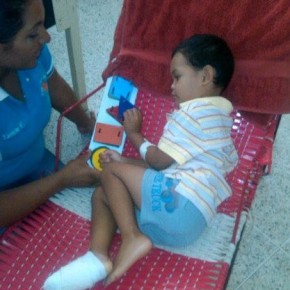 to hacia los niños que padecen enfermedades graves y sufren tratamientos dolorosos y agotadores.
to hacia los niños que padecen enfermedades graves y sufren tratamientos dolorosos y agotadores. en su artículo la pedagogía hospitalaria y el pedagogo hospitalario expresa que la pedagogía hospitalaria se origina en los trabajos de Itard, Decroly y Montessori en la que ofrecen colaboración médico-pedagógica desde el siglo XIX. Acentúa que el rol del docente en este contexto es lograr una incorporación progresiva y no traumática al centro escolar, proporcionando apoyo cognitivo y emocional para mejorar la calidad de vida. Se reconoce la eficiencia del docente en el proceso de recuperación del paciente, el docente es el intermediario entre el personal médico-sanitario, la familia y la escuela.
en su artículo la pedagogía hospitalaria y el pedagogo hospitalario expresa que la pedagogía hospitalaria se origina en los trabajos de Itard, Decroly y Montessori en la que ofrecen colaboración médico-pedagógica desde el siglo XIX. Acentúa que el rol del docente en este contexto es lograr una incorporación progresiva y no traumática al centro escolar, proporcionando apoyo cognitivo y emocional para mejorar la calidad de vida. Se reconoce la eficiencia del docente en el proceso de recuperación del paciente, el docente es el intermediario entre el personal médico-sanitario, la familia y la escuela.
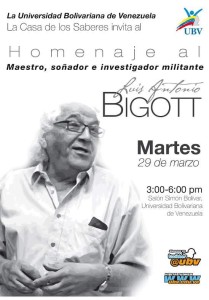
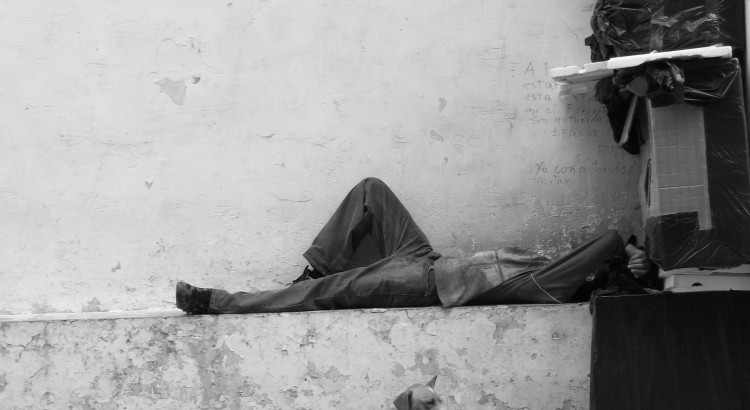
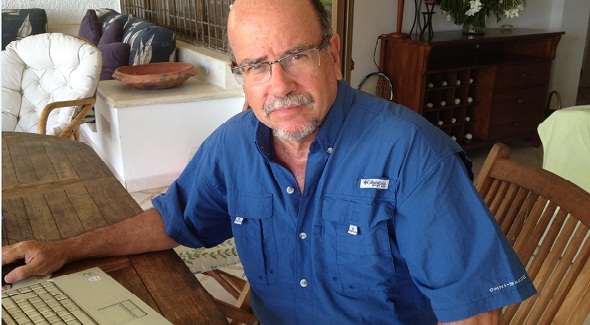
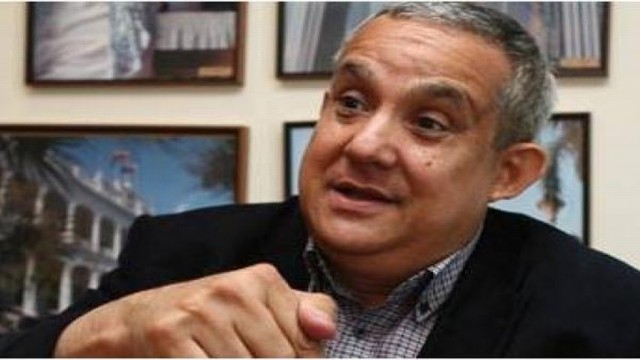





 Users Today : 88
Users Today : 88 Total Users : 35459994
Total Users : 35459994 Views Today : 124
Views Today : 124 Total views : 3418589
Total views : 3418589